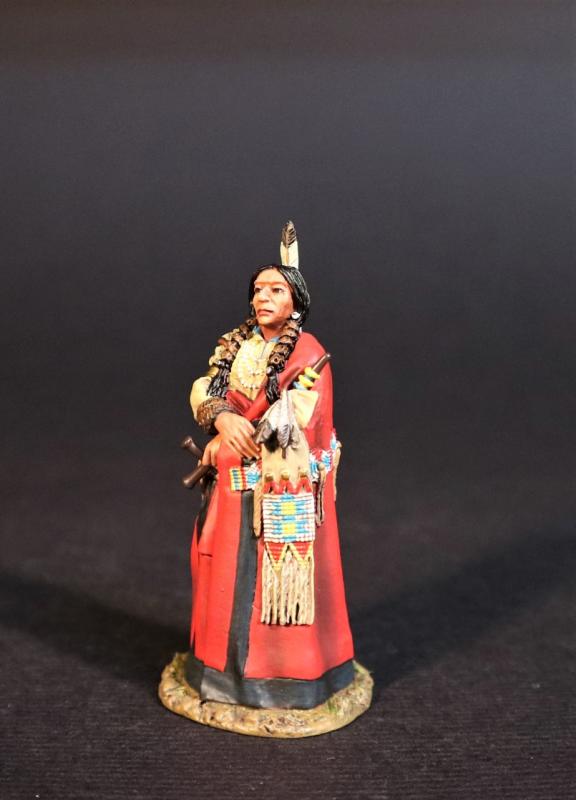Chief Sitting Bull, The Fur Trade--single figure
$54.00
Item Number: WSP-90
Chief Sitting Bull, The Fur Trade
Sitting Bull (c. 1831 – Dec.15th 1890) was a Hunkpapa Lakota leader who led his people during years of resistance against United States government policies. He was killed by Indian agency police on the Standing Rock Indian Reservation during an attempt to arrest him, at a time when authorities feared that he would join the Ghost Dance movement.
Before the Battle of Little BigHorn, Sitting Bull had a vision in which he saw many soldiers, “as thick as grasshoppers”, falling upside down into the Lakota camp, which his people took as a foreshadowing of a major victory in which many soldiers would be killed.
About three weeks later, the confederated Lakota tribes with the Northern Cheyenne defeated the 7th Cavalry under Lt. Col George Armstrong Custer on June 25th, 1876, annihilating Custer’s battalion and seeming to fulfill Sitting Bull’s prophetic vision. Sitting Bull’s leadership inspired his people to a major victory.
The Native Americans' victory celebrations were short-lived. Public shock and outrage at Custer's defeat and death, as well as the government's understanding of the military capability of the remaining Sioux, led the War Department to assign thousands more soldiers to the area. Over the next year, the new American military forces pursued the Lakota, forcing many of the Native Americans to surrender.
Sitting Bull refused to surrender, and in May 1877, he led his band north to Wood Mountain, North West Territories (now Saskatchewan) Canada.
He remained there until 1881, refusing a pardon and a chance to return.
When crossing the border into Canadian territory, Sitting Bull was met by the North West Mounted Police of the region. During this meeting, James Morrow Walsh, commander of the North West Mounted Police, explained to Sitting Bull that the Lakota were now on British soil and must obey British law. Walsh emphasized that he enforced the law equally and that every person in the territory had a right to justice. Walsh became an advocate for Sitting Bull and the two became good friends for the remainder of their lives.
Sitting Bull and his people stayed in Canada for four years. Due to the smaller size of the buffalo herds in Canada, Sitting Bull and his men found it difficult to find enough food to feed their starving people. Sitting Bull's presence in the country led to increased tensions between the Canadian and the United States governments.
Released in MAY 2023.
